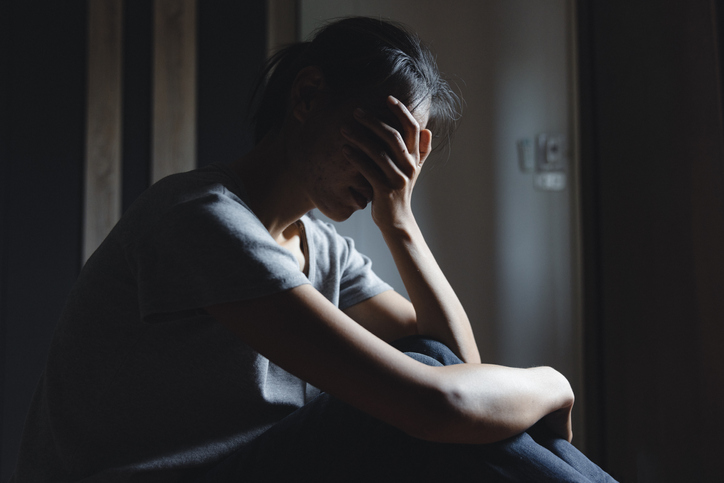2 in 5 Brits claim to have suffered economic or financial abuse

Authored by Aviva
Highest proportion (39%) of victims suffered abuse at the hands of their spouse/ partnerIn just over one in five (21%) cases the perpetrator was a friend, and 14% say the culprit was their employer61% of victims say their situation has worsened because of the cost-of-living crisis23% of victims sought support from their bank; only 13% spoke to the police
In the UK, economic and financial abuse is increasingly recognised and understood. Financial abuse can often leave victims with limited or no access to money when perpetrators take control of an individual’s money, spending, bank accounts, borrowing, or even restrict access to transport and technology to be able to work.
In May last year, the FCA identified a 15% rise in customers with vulnerabilities, mainly due to low financial resilience and life changing events caused by the pandemic and current economic crisis.
So, as more companies attempt to address the challenges faced by victim-survivors of abuse, Aviva’s latest research reveals that two in five (40%) Brits may have suffered from financial or economic abuse in their adulthood and, of them, men are more likely to admit to being victims than women (53% vs 34%). Yet, men are less likely to experience this type of abuse at the hands of a partner (33%) compared to nearly half of women (47%).
Of the respondents who say they suffered financial abuse, one in eight (12%) said the perpetrator took control of what they bought. Just under one in ten (9%) say their debit or credit card was used to pay for items without their knowledge; 7.5% received ‘pocket money from their own bank account’ (rising to 16% of 18-24 year olds) and a similar number (7%) had contracts taken out in their name for the perpetrator to use (i.e. mobile phones, credit cards, mortgages and loans). Some even made their victims change the beneficiary on their will.
In most cases (39%) the main perpetrator of the abuse was a spouse or partner, but almost a quarter (23%) claim the offender was a parent, sibling, or a family member. Perhaps surprisingly, one in seven people (14%) say they were deceived by their employer or a colleague. Worryingly, most victims (61%) indicated that their situation had worsened because of the cost-of-living crisis.
For just under a third of victims (32%) the abuse carried on for months, but a quarter (25%) say it happened for years, and sadly, 6% say it is still happening – this is particularly relevant to women where 40% say abuse lasts for years, or is still happening, compared to 25% of men. However, men seem to recover financial resilience more quickly, with 60% of them recovering within a year, compared to just 35% of women.
Alistair McQueen, Head of Savings and Retirement at Aviva says, “We are extremely concerned to hear these findings, but we completely understand the importance of making sure we protect our customers and employees from this type of abuse, especially those who are vulnerable. We communicate regularly about domestic abuse, including economic and financial abuse, to raise awareness and reduce stigma.
“Amongst other things, we continually train our people to recognise and respond to domestic and economic abuse. We work hard to create conditions which minimise the number of times a victim-survivor needs to share information about their circumstances, and we are looking at our products and processes to ensure they protect the safety of those victims.
“Through our work with various industry bodies and charities, such as Surviving Economic Abuse, we continually look for ways to develop and improve our practices. This is especially true for customers made vulnerable by economic abuse where we focus on limiting instances that abusers can exploit or sabotage victims’ economic resources.”
Reassuringly, 76% spoke to someone about the incident(s) – a quarter (25%) say they spoke to their friends and family and almost as many (23%) spoke to their bank, before speaking to the police (13%) or any other professional body, such as victim support (13%).
Dr Nicola Sharp-Jeffs OBE, CEO and founder of Surviving Economic Abuse (SEA) said, “This research reveals just how widespread economic abuse is in the UK. It highlights how for many and particularly women, abuse by an intimate partner can last several years. It also highlights how this form of abuse is rarely just a one-off event, but part of a wider pattern of coercive and controlling behaviour.
“With survivors almost as likely to speak to their bank as their friends and family, it’s more important than ever that banking and insurance providers are vigilant to this type of abuse and are aware of how perpetrators can coerce and exploit victims. Training is vital across all teams, from those in customer facing roles to those designing and implementing new products, to recognise and support victims at every stage and shut down opportunities for further exploitation.
“It’s also clear that the increased cost of living is taking its toll, with almost two thirds saying the crisis has worsened their situation. We’ve already seen firms taking proactive and innovative steps to support victim-survivors of economic abuse during these challenging times and we hope to see more of this in the new year.”
Controlling or coercive behaviour – including financial abuse – became illegal in 2015. Experts at Safe Lives and Surviving Economic Abuse are available to help or, if you are a victim, or know of someone who needs help, call The Domestic Abuse Helpline on 0808 2000 247 or go to the SEA forum.





